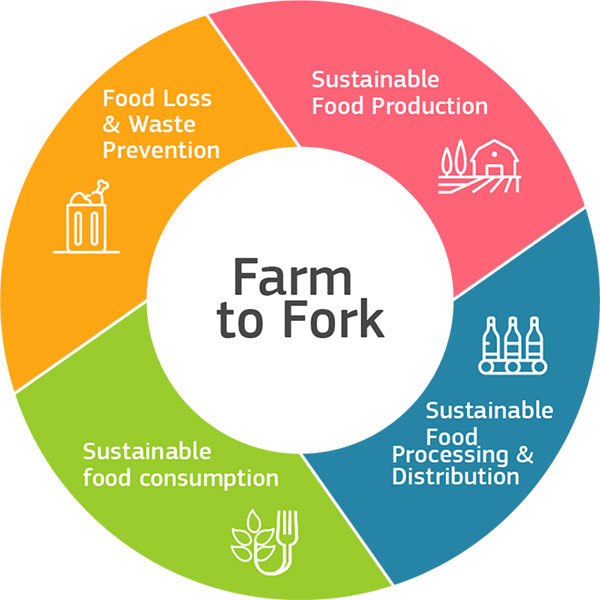
Italy’s food industry association, Federalimentare, supports the EU Green Deal project which should enable the entire European agri-food chain to raise its production standards in terms of quality and sustainability. “However, several aspects of the Farm to Fork Strategy (which was presented last week by the European Commission, ed), are puzzling” – says the president of Federalimentare, Ivano Vacondio.

According to Federalimentare, in light of the health, social and economic emergency caused by the spread of Covid-19 pandemic the Farm to Fork Strategy should be oriented taking into account the priority need to help companies in the food chain, especially the smallest, to regain momentum after the pandemic crisis. “On the contrary – Vacondio says – there are still commitments that impose additional burdens on businesses, which are largely unsustainable in the current situation. The European institutions should take greater account of the risk that these measures could lead to a significant loss of international competitiveness for the European agri-food sector.”
Click here to discover the authentic Italian food and beverage products on Italianfood.net platform
ALL THE MEASURES THAT RISK DAMAGING ITALIAN PRODUCTION
- According to the Commission’s plan, codes of conduct, reformulation rules, upper limits for certain nutrients and new sustainability criteria will be established over the next 18 months;
- In 2022, new rules will be created for food contact materials, European nutrient profiles and a mandatory labelling system for manufacturers to comply with;
- The document also provides for the setting of salt, sugar and fat limits in products and the mandatory reformulation of products outside the thresholds.
The latter purpose – which has no scientific basis since it is not the excess of ingredients in a single product that causes obesity or non-communicable diseases but an overall incorrect diet – can put into crisis many typical Italian products that cannot be reformulated due to their composition or tradition: among them cheeses, typical cold cuts and confectionery products. In addition to seeing their freedom of choice reduced, consumers would risk finding products with a shorter shelf life, since salt and sugar are natural preservatives. Think, for example, of raw ham.
It should also be noted the contradiction related to PDO and PGI products, whose cultural and traditional value is recognized by the European Union: if the recipes for these products were reformulated, they would risk losing their designation of origin.
